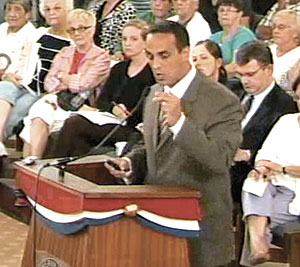
City Employees expressed unease about joining the GIC healthcare plan.
Aldermen approve healthcare cost-cutting measure
By Andrew Firestone
Aldermen approved switching over to the Group Insurance Commission healthcare plan this last Thursday, August 11, setting up a 30-day negotiation process with public labor unions across the city. In front of a crowded room, the Board of Aldermen, with three members absent, wrestled with and passed the measure.
There were some last minute stipulations; Aldermen approved a resolution to use city funds to bridge the premiums gap for their retirees by keeping city costs at 80 percent, rather than the across-the-board 75 percent under the GIC.
Retirees have seen their health insurance premiums rise in recent years, first by being moved to Medicare when applicable, then with this new measure raising their premiums from 20 to 25 percent.
“There’s the savings, but there’s also the effect. And we are affecting retirees when I see cancer treatments costing something like $5000,” said Alderman-at-Large William White.
“I’m going to want something in the budget, to have a fund, and when it comes time for replenishment, I’m going to want something in there,” said White regarding protections to retirees. “Because if it isn’t in there I’m gong to say now that I’m not going to vote for the budget.”
Mayor Joseph Curtatone was adamant that the current situation, with lower state aid and ballooning healthcare costs, was proving “unsustainable”.

Mayor Joseph Curtatone defended his support of the GIC to the Board of Aldermen and over 120 employees and retirees.
“We need to also think about our property tax payer. We have a responsibility to provide healthcare to our employees and retirees,” said Curtatone. “We believe in that.”
“But we have a responsibility to use our tax dollars wisely. It takes an average of four two-family homes to pay for one average employee’s family insurance plan. That is not tax equity in this city, and that is not a wise use of tax dollars.”
If approved following the 30-day negotiation process with the Public Employee Committee, the movement to the GIC will save the city an estimate $2.3 million in fiscal year 2012, and an estimate $75 million in the next six years. Aldermen noted these savings when discussing their approval.
Alderman-at-Large John Connolly said he looked over his oath and decided that it was better to swallow the jagged pill. “This has been an arduous process. A ticking time-bomb,” he said. “Many of us have worked for a long time to see the city move forward. We have to keep that balance in mind.”
“We have to do what is best for the city, not from an individual group, for an individual organization, but best for the city,” said Connolly.
Curtatone said that, with GIC growing more powerful, Blue Cross-Blue Shield might eventually see that they would have to join. The loss of BCBS coverage in the GIC was of great concern to many retirees.
The Mayor also said that he would have wished for greater participation from the Public Employees Committee, and that he was not opposed to the “80 percent” retiree resolution. “That’s a fair and balanced suggestion. I submit we could have been there if we had actually engaged participation rather than deafening silence during the coalition bargaining process, from the collective bargaining units and their own retiree representative. We could have been there.”
“Now it really comes down to how we use the mitigation to give that safety net to those who have chronic needs, high utilizers, and how creative we can be. That’s a discussion that goes on with the PEC so I call upon them to be engaged upon that.”
Debate now begins with the City and the public unions to reach a common ground.
Aldermen Sean O’Donovan, Tom Taylor, and President Rebekah Gewirtz were absent. Over 120 employees and retirees arrived for the hearing.















Reader Comments